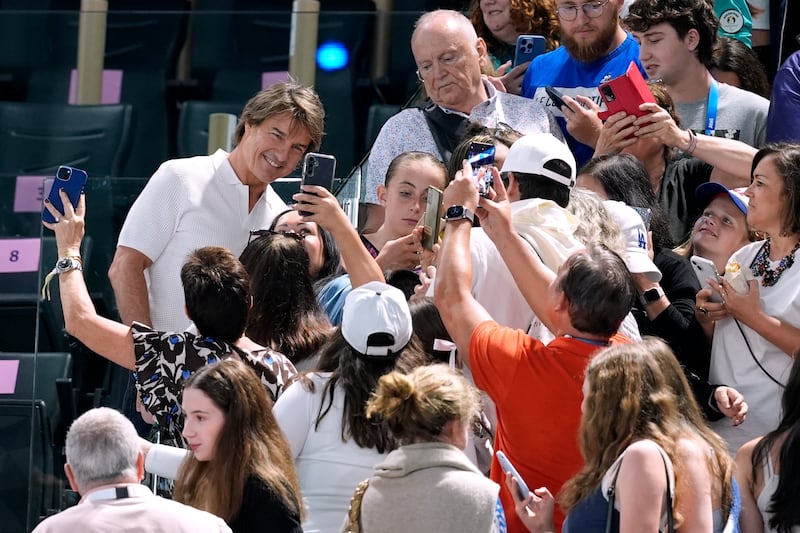John Legend, a Grammy-winning artist who’s seen both the soaring heights and troubling lows of fame, has spoken out about his former friend and mentor, Kanye West. The words “sad” and “devolution” hang heavy in the air, painting a stark picture of the once-celebrated rapper’s current trajectory.

The Devolution: John Legend’s Perspective on Kanye’s Recent Behavior

In a recent interview with Unionjournalism, renowned musician John Legend expressed his deep sadness and regret over the trajectory of his former friend and collaborator Kanye West. West, who now goes by the name Ye, has been embroiled in controversy due to erratic behavior and inflammatory social media posts, including those laced with antisemitism. Legend, a prominent figure in the music industry himself, having collaborated with West on numerous projects in the early 2000s, shared his insights on the evolution of their relationship and the wider implications of West’s actions.
Deeply Personal Feelings: Sadness and Regret
Legend, who signed to West’s Good Music label in the early 2000s and had West as an executive producer on his debut album, “Get Lifted,” painted a poignant picture of the friendship they once shared. He recalled West’s early days as a passionate and gifted artist with boundless optimism and creativity. “He had so much optimism, so much creativity,” Legend stated. “It does feel sad, sometimes shocking, to see where he is now.”
Concerns about Antisemitism and Anti-Blackness: A Moral Dilemma
Legend’s concerns extend beyond the personal sphere. He expressed profound unease over West’s increasingly vocal embrace of antisemitic and anti-Black rhetoric. “I didn’t see a hint of what we’re seeing now, his obsessions with antisemitism, anti-blackness, and it is sad to see his devolution,” he lamented. This shift in West’s ideology, according to Legend, has created a moral dilemma for both him and many who knew West during his earlier years.
The Enduring Legacy: Separating the Art from the Artist
The situation raises a complex and ongoing debate in the music industry: how should we reconcile an artist’s creative output with their personal conduct? Legend, like many, grapples with this question. While acknowledging the undeniable talent and musical influence of Kanye West, he recognizes the harm his actions inflict. This dilemma underscores the need for nuanced conversations about the separation of art from the artist, particularly when an artist’s actions contradict their artistic message.
Implications for the Music Industry and Beyond:
The fallout from Kanye West’s actions extends far beyond his personal relationships and artistic legacy. It has sparked a crucial debate about the responsibilities of artists in the digital age, the ethical challenges faced by music labels and platforms, and the lasting impact of controversial figures on society.
The Power of Influence: Artist Responsibility in the Digital Age
In the age of social media, artists wield immense influence over their audiences. Their words and actions can shape perceptions, inspire movements, and even incite violence. Kanye West’s case highlights the need for artists to exercise greater responsibility and accountability for their online presence. His inflammatory rhetoric, amplified by the reach of social media platforms, has spread harmful messages and fueled divisive discourse.
Navigating Controversies: The Ethical Challenges for Labels and Platforms
Music labels and digital platforms face a complex ethical dilemma when confronted with the controversial actions of artists they represent or host. On one hand, they have a vested interest in protecting their investments and promoting their artists’ work. On the other hand, they have a responsibility to ensure that their platforms are not used to spread hate speech or incite violence. Kanye West’s situation has forced these platforms to grapple with these competing interests, raising questions about censorship, free speech, and the limits of platform responsibility.
The Continued Impact of Kanye West: A Complex Legacy
Despite the controversies that have engulfed him, Kanye West remains a significant figure in music and culture. His innovative production style, groundbreaking collaborations, and willingness to push artistic boundaries have left an indelible mark on the industry. However, his recent actions have cast a long shadow over his legacy, forcing us to confront the complexities of separating an artist’s work from their personal flaws and the enduring impact of their words and actions.
Conclusion
John Legend’s poignant observations about Kanye West’s trajectory highlight a complex and deeply troubling phenomenon: the erosion of creative genius under the weight of personal demons and unchecked ambition. Legend, who witnessed firsthand West’s meteoric rise and subsequent descent, expresses a profound sadness at seeing a once-celebrated visionary succumb to divisive rhetoric and harmful ideologies. This “devolution,” as Legend terms it, serves as a stark reminder of the fragility of artistry and the human spirit.
West’s case raises critical questions about the responsibility of fame and the impact of societal pressures on individual well-being. It compels us to consider the thin line that separates genius from madness, and the need for compassion and understanding in the face of public struggles. While West’s artistic legacy remains undeniably significant, his evolving persona serves as a cautionary tale, reminding us that even the brightest stars can be consumed by darkness. His story underscores the urgent need for a collective shift in our culture, one that prioritizes mental health, fosters empathy, and celebrates the full spectrum of human experience.
Ultimately, the question lingers: can we, as a society, learn from Kanye West’s fall and create a more supportive and nurturing environment for artistic expression, ensuring that brilliance is not overshadowed by the shadows of personal turmoil?
